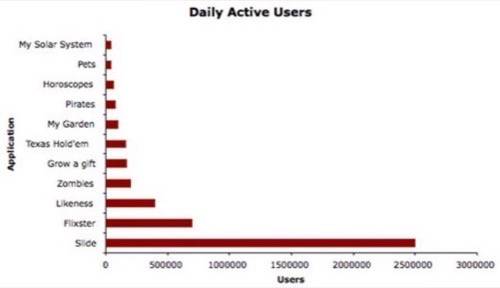Tim O’Reilly and team have done some interesting research into the rise of Facebook as an application platform. They released a report entitled The Facebook Application Platform, which we’ve been looking at in the virtual offices of Read/WriteWeb. One of the findings in the report is that Facebook apps follow the now familiar power law of popularity – a point also made by Alex Iskold in a R/WW post at the end of September. As the O’Reilly report put it: “a Facebook developer needs to build a huge viral hit to get anywhere near the top. As the aggregator, the company that benefits the most from niche applications is Facebook itself.”

Top 10 Facebook Apps Usage; chart by Alex Iskold, 27 Sept 2007

As Alex Iskold put it, “the rationale behind the rush to build Facebook applications is that new applications have a potential to spread virally across Facebook’s already mammoth user base.” However Alex says that there’s “a big flaw in this argument”, which is that it has brought too much clutter and overwhelming choice into Facebook.
Alex’s suggested solution was controversial – it got some kick back in the comments – but in light of the O’Reilly report it is worth considering:
“Could Facebook do a bit more filtering for us? That might make the site more useful. Why can’t there be a relevancy algorithm that cleans up the mini feed? Why can’t there be fewer applications that do the same thing? Maybe there should be a standard profile view, which would arrange things on people’s profiles in the way that I like – that would surely make it easier to comprehend things. And most importantly, maybe Facebook should refocus on what social networks are about – communication.”
[emphasis mine]
We are hearing a lot about recommendation and other filtering technologies today, so why can’t Facebook use some of those technologies to make it simpler for users to choose suitable web apps? And it needn’t be based on popularity either – there can be ratings for quality and usefulness, similar to Netflix and Amazon.
Incidentally, if you are looking for recommendations for Facebook apps, check out Read/WriteWeb’s series of posts on the best
third party apps on Facebook. R/WW’s Josh Catone picked 50 top apps, across 5
categories:










